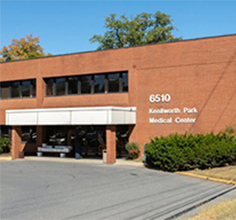.jpg)
Taking care of your heart is one of the most important things you can do for your overall health. At Southern Maryland Medical Group, we’re here to help you every step of the way. One of the tools we use to assess and monitor heart health is the treadmill test with ECG, which is also called a stress test. This incredibly useful test gives us a close look at how your heart functions when it’s working harder than usual, like during exercise. Whether you’re managing a current condition or just trying to stay ahead of potential issues, this test provides valuable information that can guide your care plan. Read more to find out what a treadmill test with ECG involves, how it works, and why it might be the right next step for your health.
A treadmill test with ECG evaluates how your heart responds to physical exertion. Unlike resting ECG testing, which measures your heart's electrical activity while at rest, this test provides a dynamic look at how your heart functions during exercise. This allows primary care physicians to detect irregularities that may not be evident when the body is at rest. During the test, you walk or jog on a treadmill while your heart’s electrical activity is recorded using an ECG machine. Small, adhesive electrodes are placed on your chest, arms, and legs to capture this activity. The treadmill gradually increases in speed and incline to simulate physical stress and provides detailed information about your heart’s response.
The process is simple, and your medical team will guide you every step of the way. Here’s what you can expect:
The treadmill test with ECG provides valuable information that can guide your care plan. It helps primary care doctors evaluate:
The treadmill test isn’t just for diagnosing existing conditions. It can also:
To ensure accurate results and a comfortable experience, consider these preparation tips:
Have you talked to primary care physicians about the possibility of heart issues? Southern Maryland Medical Group provides professional medical assessments and personalized ECG treatment plans that fit your needs. Contact us to learn more about our services or to book an appointment. Your heart deserves the best care, and we’re here to provide it.
Southern Maryland Medical Group has 3 convenient locations to provide professional medical care services in the Southern Maryland area. Call or schedule an appointment with one of our locations to get medical care help.

5801 Allentown Road, Suite 400 Camp Spring, MD 20746
Phone: 301-868- 0150
Billing Inquiries: 301-552-1270
Fax: 301-868-0243

7500 Greenway Center, Dr #1200 Greenbelt, MD 20770
Phone: 301-486-7580
Billing Inquiries: 301-552-1270
Fax: 301-486-7581

6510 Kenilworth Ave, Ste 1400, Riverdale MD 20737
Phone: 301-618-0771
Billing Inquiries: 301-552-1270
Fax: 301-618-0772